I have been watching the USDCAD waiting for an AB=CD completion for a while now. This particular case looked really good to me because the pattern looked as if it completed right around some really strong daily structure. The only problem was that my D completion leg was actually underneath the lows of the previous structure which presented a dilemma for me. Long story short, when I switched down to a lower timeframe to get a closer look, I saw a pretty good structure level forming around the previous structure lows, but above my original entry plan. The market had been oversold at the lows of the previous structure, retraced, and retested with RSI divergence. This is when my emotions took hold of me, and I told myself that I couldn't miss this opportunity (with it being only 20 something pips away from where I was looking to enter). Not too long later a realized that didn't follow my original plan on how to trade this set-up and I exited the trade for a small loss.
Could I have stayed in the trade, of course. I mean my stops were nowhere near being hit. The point is that I made a mistake, realized that I made a mistake, and terminated the trade instead of holding on to a bad trade. Looking at the pair this morning, I see that the USDCAD has reached the level that I originally predicted and has shot right back up. Now there is no telling this early if this trade will end up to be a winner, but you know what I don't care. In the past I would have been flipping out like "man I was in this trade and if I would have just stayed in I would be up 50pips." Or "I'm going to go crazy if this trade goes on to be a winner without me being in it grrrr!" But I no longer think like that anymore. My mindset now is that win or lose this would have been a bad trade regardless because if I were to look in my trading plan I have written "As long as I follow my rules of engagement I will never enter a bad trade, bad being defined as a trade in which I break my rules."
I wanted to share this to show that even though I have gotten a lot better at trading, I still make mistakes. The difference now is that when I make mistakes, I am now able to recognize them sooner and then I never try to make that same mistake again. More importantly I accept the fact that I made a mistake and don't let my pride get in the way. (In the past I would live or die by my trade and would end up taking big losses due to the fact that I felt I had to be right every time.) Funny how this actually leads me into the next post that I was going to write titled "Kaizen", which I'll be putting up this weekend... hopefully.
Anyway, thanks as always for taking the time to read my post and hopefully my mistake will stop someone else from making the same.
I apologize for not posting in a while but the past few weeks haven't been too good. Car problems aside, my biggest hardship was losing my internet connection for a good five days. At first I was extremely upset and frustrated, but as I was forced to deal with it, it began to appear like more of a blessing in disguise.
Early last week I wrote a short post on how I was dealing with a pretty bad losing streak. Although I never entertained any thoughts of quitting on my trading, or changing systems, I did notice a change in my mental state towards the market. As mentioned in the past, I look at my trading in the market strictly by numbers and percentages meaning that if I have a long losing streak, then I fully expect some wins to come soon in order to even things out (and vice versa). Because of this thinking, I felt myself over analyzing the market due to the fact that I felt like a win was on its way. I don't want to go as far as saying that I was revenge trading (because I was still following my rules), but I felt myself digging really hard to find trades instead of just waiting for the obvious signals. It was at that moment when I lost my internet connection.
Thinking everything would be fixed by the next day, I decided to get away from my computer and do something fun. I proceeded to do the same throughout the remainder of the week and it really became like a personal vacation. I wasn't checking charts, I wasn't back-testing, I didn't even have a chance to check trading underground. My mind was totally away from the market and it felt great. When I got the internet connection fixed that weekend, I felt like I had a brand new perspective on the market. Charts began to look clearer than they did earlier that week and I felt like I had a brand new energy and drive to trade the market.
We all come across times when the market frustrates us. And for those who trade on a daily basis, we can also become consumed by the market if we never take a break. Taking some time off and not worrying about missing trades can be a great benefit to both your trading and your lively hood. Not only doesn't it give you a chance to have fun and enjoy the benefits of life, but it also allows you to gain new perspective on the markets and have a brand new energy towards trading them. Think of a time where you went on a vacation, or a business trip and you were away from your family, best friends, or any loved ones for a while. How much more excited were you to see them when you returned? This is how I felt about finally getting my charts back.
If you're a counter trend trader like me, then chances are you had a pretty rough day in the market yesterday. Days like these are the perfect test of character days. Just like Jason said in his video, you have two choices. You can either pout and moan and look for another system to trade, or you can stick to your rules, keep looking for future opportunities and keep pulling the trigger. If you've read of some my previous posts (and the comments on them) then the decision should be pretty easy. STICK TO YOUR SYSTEM. This may sound a little weird, but if anything you should be happy for the losses. Nobody wins all of the time so losses should be expected. Yes, it sucks when they come back-to-back but if you did your back testing correct you should have not only been prepared for a drawdown streak but you should also have a pretty good idea of what your average win percentage should be. If you trust those numbers (and numbers never lie) then you know that a streak of losers means that some winners are on the way to even things out. At least that's how I think
I had a very similar experience to this last month. The first four trading days in June were all losing days for me. These losses literally wiped out everything I had made in May. Was I frustrated, yes, but I also knew that my average win percentage had been about 50% so by starting with only 3 wins in my first 10 trades I had confidence that things would eventually even out. I went on to finish the month with a 53% win percentage and had the most profitable month of my trading career.
Hopefully this post will help anybody that may be entertaining the thought of quitting or changing systems out of fear and/or frustration. Remember it's the big picture results that matter the most so don't let one day throw you off your game.
Putting your hard earned money on the line can be a difficult circumstance to deal with when you're first getting into trading. Especially when you hear statistics like 95% of all traders fail. My advice is don't think about the money. Rather judge your trading off of how well you execute your plan and how well you identify goo trading opportunities. So here's a question for you. If 98% of all traders fail like they say, then how come most traders seem to do well in their demo accounts? I believe, it's because there are no emotions or attachments to demo trades. In a demo account traders find it easy to enter trades, stick to targets, hold stops, etc, all because there is no consequence to losing. However, when you start trading with real money it can be a lot different if you're not properly prepared for it.
When I first started trading (before going through the T2 training) I was a demo account king. I didn't have a written plan, no set in stone rules, but whenever I entered something it seemed to win. As you could expect I soon decided to trade live. After all I was realizing all of these demo profits so why shouldn't I take advantage and make some real money.......A month later I decided to stop trading live because I pretty much blew my account. It was at this point that I realized the psychological difference between trading with pretend money and real money. When trading with my own cash, I suddenly started to miss trades because I would think too much about them more before entering or I would take profits out way to early in fear that the markets may reverse. My winning percentage was positive, but that meant nothing since I was letting losers ride, and cutting winners short. Because I had a small account I would get upset at my wins because the payoff seemed so minimal compared to the amount of stress it took to get there, and I would get upset at my losers because I had to watch my hard earned money go down the drain. It was a never ending cycle that not only did a toll on my account, but my psyche as well.
After my hiatus from trading and finishing the T2 training course, I started over with a clean slate. I had properly back tested, written a detailed training plan, and laid out specific goals that I wanted to reach. I opened a small account and was trading pretty consistent for the first few months. After seeing that I was doing well a family member of mine wanted to get in on the action. (I honestly knew I wasn't ready to trade anybody else's money but eventually I agreed.) I was given about 20 times the amount that I was trading before and although I continued to trade consistently for the following couple of months he wasn't happy with the monetary return I was making on his investment. This pressure lead me to focus on chasing a dollar figure rather than a consistent monthly percentage and I fell back into the same boat as the previous paragraph. (Luckily for me, I noticed the path that I was heading down and decided to cut trading ties with this client before it got too bad.)
Jason once said this in his class, "if you can make a dollar in the market, you can make a million." This seems odd at first but if you think about it it's very true. Trading is about controlling your percentages not profits. If you can make a consistent percentage trading each month with a 10k account then your $300 a month profit will easily change to a $3,000 a month profit without you doing anything different. This may be hard to realize at first, but give it time and you'll slowly start to see a difference in your account balance and even more importantly your trading habits. Being a trader with a small account I tried to remind myself of this every day by putting it in the psychology & philosophy section of my trading plan (which I read every day before trading) but also by having a note in my room that says "Just Keep Doing What You're Doing." I realize that even though my account is small, my percentages are high and if I can consistently trade the right way it's only a matter of time before I get rewarded more for putting in the same amount of work.
For those who have been following me you know that I try to live my life by one main rule "Kaizen" or continuous improvement. Just like everybody else on this planet I make mistakes. However, I never try to make the exact same mistake twice and that's what allows me to slowly improve in what I do. On June 15th I wrote a post called "Protection vs. Prevention" that talked about a trade situation that I faced which (in brief) I set my stops to close and ended up getting stopped on a trade would have awarded me profit. If you would like more details you can look back in the archives to read the piece in its entirety, but I faced a very similar situation last night. At first I was about to make the same mistake, but then I had a flashback of the previous trade and I went ahead and adjusted it accordingly.
There's not much more to this post, but I just wanted to follow up on a well learned lesson. I posted a chart on both pieces so you can view the comparison.
Do you consider your trading to be a hobby or a career? What seems to be a simple question can potentially be what makes or breaks you as a trader. Trading is not a gift, it's nothing dynamic that you are born with the ability to do. Trading is a skill, and like with any other skill it's up to you to determine how much you master it. I truly believe that the amount of commitment you put into your trading goes hand in hand with the amount of success you will have. When I say commitment I'm not strictly talking about hours in front of charts, or how many times you watch trading videos. This commitment starts with having the right mentality.
Let me ask you another question, when people ask you what you do for a living how do you respond? Six months ago this is what I would have said: "Well I just got laid off from my job so right now I'm volunteering as a track coach and doing some investment stuff on the side." It seems stupid now but when asked I would shy away from admitting that I was a trader. I'm not sure if I was embarrassed or ashamed that they wouldn't understand what I do, but you can obviously see that I didn't fully embrace my role as a trader. To me, I made trading seem like it was a hobby of mine that I kind of just played around with on the side. And trust me thinking of trading as simply a hobby (if you're pursuing to be a successful trader) is the wrong mindset to have. Don't get me wrong, I had full intensions of being a full-time professional trader, but my actions just said otherwise. The good thing about having a hobby, is the fact that it's something you don't have to do. A hobby is something you pursue in your leisure time and if you don't have time for it, or if it ceases to fulfill you, you can always quit. A hobby is something that you don't have to be 100% committed to. If you're thinking of your trading in the same light then well, you're pretty much screwed. In order to be a successful trader you must take your craft seriously and treat it like the job that it is. This means setting a specific time to wake up, writing out a daily routine to follow, having rules of engagement and following them. But probably most importantly is being 100% committed to your trading system win lose or draw.
As I'm sure your trading coach warned you, periods of drawdown come and when they do they are not fun. However they are part of the game and are something that you have to fight through in order to reach ultimate success. When my first draw down streak came I ran from it. I treated my trading strategy like it was a hobby and when it wasn't working out the way I wanted it to, I tried to find something else. Literally a week after I abandoned my original trading strategy because of a bad month, I watched it go crazy with me not involved. This was a moment that I will never forget because if I would have simply continued to trade I would have made back triple of what I lost in the previous month. Yes, I did want to toss my computer out the window, but I knew that it all started with me and not taking it as seriously as I should.
At this point I made the conscious decision to become 100% dedicated and committed to becoming a professional trader, and this started with calling myself a Professional Trader. This past weekend I got to visit some friends and family members that I haven't seen in a long time. When question came up about where I'm working I confidently responded "I'm self employed as a professional trader." No stuttering, no trying to make it sound different than what it is. I now have a lot pride in what I do and am proud to let others know. I've been doing this ever since I re-dedicated myself and although it's not the main reason for my success, truly embracing my title was a very crucial step. I believe that success starts in your mind and if you believe in something strong enough, then you can will it happen. Of course you need to commit to other aspects as well but it all starts in believing that you can and that failure is not an option...ever! So I leave you with this question, is trading your hobby or job?
Thank you for taking the time to read this post and I hope you were able to take something positive from it. Akil L. Stokes
www.iambusiness.info
P.S. Currently there is a bug on the site that won't allow me to access your comments. This is currently being looked at and when I am able to I will respond to all of them.
|
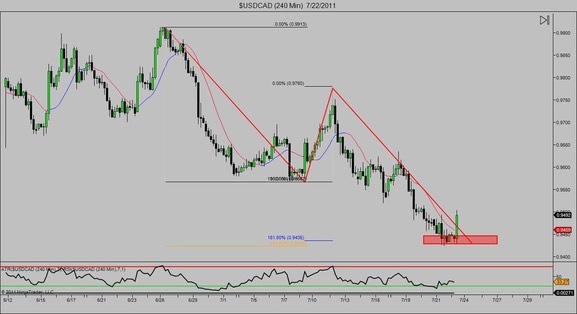
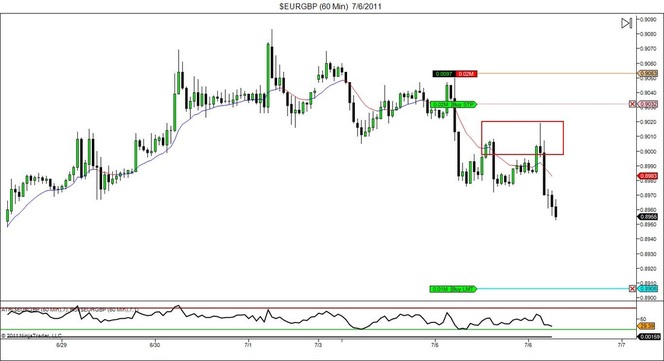
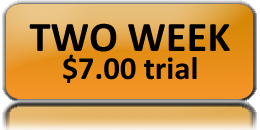

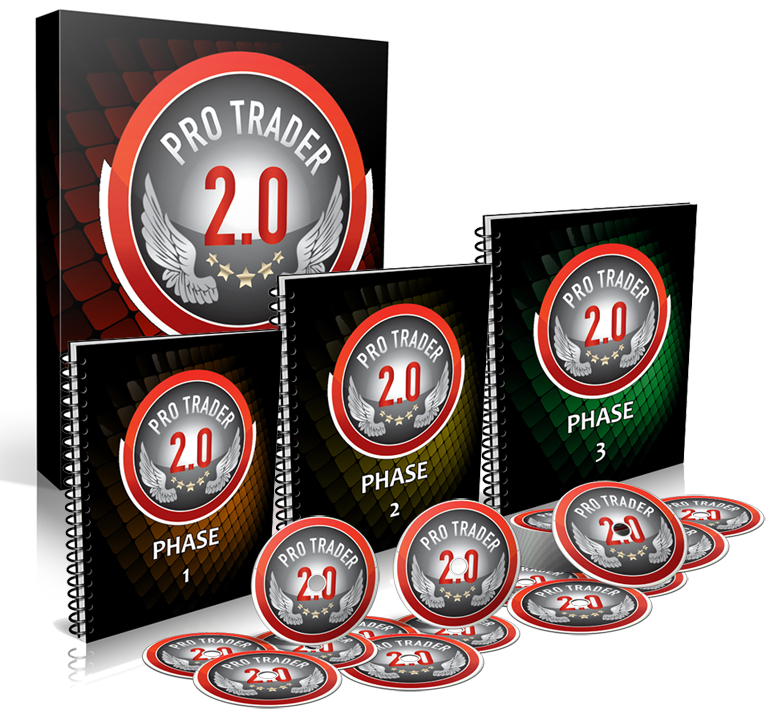




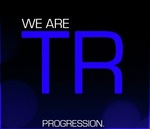
 RSS Feed
RSS Feed